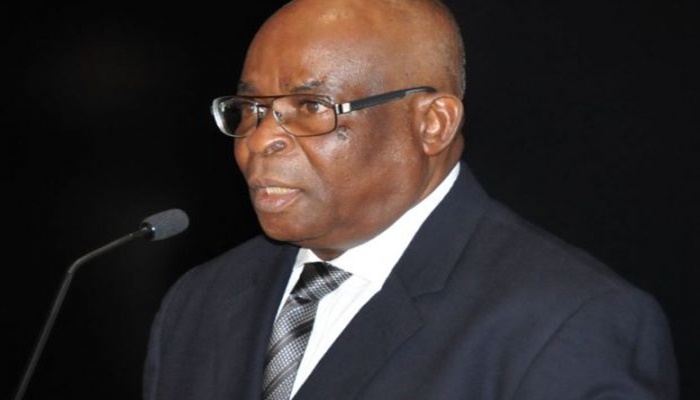
The Senate on Wednesday confirmed Justice Walter Samuel Onnoghen as the substantive Chief Justice of Nigeria (CJN) after rigorous screening.
The newly confirmed CJN listed the rebranding of the country’s judiciary among his top priorities for the Third Arm of Government.
Onnoghen, who has been acting as CJN since November 10, 2016, was cleared to assume the substantive portfolio by the Senate on Wednesday.
Fielding questions from the Senators on various issues bedevilling the judiciary, Onnoghen, who remained unruffled, admitted that the Nigerian judiciary was corrupt, but quickly added that “it was a product of a corrupt society.”
According to him, “I will preside over a judiciary that is strong-willed and of unquestionable integrity”.
He also used the opportunity to promise that he would lead the judiciary out of its present predicament and image crisis to become a reformed and vibrant organ of state.
According to him, “The judiciary is part of the society. There is corruption everywhere but efforts are being made to check it in accordance with our rules. The judiciary under my watch will be strong-willed. The judiciary under my watch will be of unquestionable integrity. I believe that the judiciary will come out of the present situation stronger”.
He also pledged that the judiciary under his leadership would not be compromised, noting that once the judiciary of any nation “is politicised, that is going to be the end of that country.”
The CJN cautioned against unfounded accusations against judges, stating that whenever that is done, “you are dealing with the privileges of men and women who have no privilege of talking back.”
Justice Onnoghen also said that the judiciary is not opposed to calls for the setting up of a separate court for the trial of corruption cases with a view to speeding up the course of justice.
He, however, noted that merely setting up a separate court for corruption matters would not solve the problem if handlers of such cases fail to dutifully carry out their responsibilities.
“There are three principal figures who are involved in every matter.” This includes the investigator, the prosecutor and the judge, pointing out that if any of the personalities fail to thoroughly discharge his responsibilities, it will lead to frequent adjournment of cases and eventual prolonged trials.”
He however warned that unless the existing system was improved upon, setting up new courts would make no difference.
He also spoke on rampant cases of conflicting judgments in the courts, and that such instances are not totally alien to the course of adjudication and he identified two factors responsible for conflicting judgments as follows:
He said a conflicting judgment may arise when a plaintiff files a suit on one matter in a state and files another in another state. According to him, the processes will not be the same, submitting that while the judge in the first state can reserve judgment, the other can dismiss it depending on existing processes in each state.
The second arises when several appeals emanate from a single case, pointing out that a conflicting judgment in such instances occur when a judge does not thoroughly examine all the appeals before delivering his judgment.
The new CJN also expressed concern over recurrent cases of disobedience to court orders, noting that such situations could only be addressed by the legislature and the executive, adding: “Judiciary will welcome a day when a decision is handed down by the court and it is obeyed. That is when the judiciary will be independent.”
He didn’t mince words to slam politicians whom he accused of bringing cases to the Supreme Court when they actually know that such cases ought to terminate in the Appeal Court.
He therefore read the riot act to politicians whom he said had cultivated such habit, as he disclosed that a new arrangement was being evolved which would ensure that any lawyer who henceforth brings a case designed to terminate at the Appeal Court to the Supreme Court will be made to fund such proceedings as the penalty for failing to properly advise his client.
The Senate President, Bukola Saraki in his remark charged the new CJN to ensure that the judiciary is entrenched during his tenure as the last hope of the common man.
At the end, Saraki ended the screening sessions by asking the nominee to “take a bow and go.”






